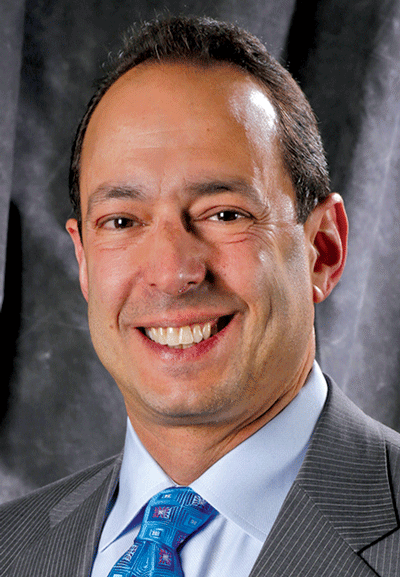A new process will assist the Minneapolis Jewish Federation in allocating funds to meet current needs
By STU SILBERMAN
At Minneapolis Jewish Federation, we talk a lot about raising money. We share stories of the people impacted by that money: the kids rolling with laughter at summer camp, the elderly Holocaust survivors celebrating Shabbat in Minsk, the smiling faces leaving the Barry Family Campus.
We talk less about what happens in the middle: how we give that money away. I’d like to change that.
I’d like to tell you more about how we are listening to our community, adjusting to meet current needs and planning for the future through a new Community Impact allocation model.

Because Federation funding is so important to the organizations we partner with, we make changes cautiously. But change over time is inevitable, as our world changes along with perspectives of funders, best practices in organizational development and our priorities themselves.
After several years of development, our team of Federation professionals and volunteer leadership is rolling out important enhancements to the system:
Simplified access for organizations
To do a thorough job of evaluating the unmet needs in our community and overseas, we have expanded our committee structure to a steering committee and, for this year, four areas of interest committees: Jewish Education, Caring Community, Jewish Identity and Engagement, and Overseas Partners.
With this new structure, each of our partner agencies interacts with Federation through their specific committee made up of volunteers who are knowledgeable and passionate about their area of service. The Community Impact Steering Committee pulls together their recommendations to present a comprehensive funding recommendation to the board of directors.
Over time, these interest-focused committees will gain richer understanding of their corresponding agencies. We may add or change the areas of interest as the needs of our community change. This closer partnership will expand and deepen beyond the annual allocation cycle to look for additional areas of collaboration with Federation and between agencies.
More volunteer opportunities
The new committee structure means opportunities for more volunteers to share their expertise, develop an even deeper understanding of our community and make a noticeable change. The sheer force of communal will, talent and dedication running through the allocations process is remarkable to observe. Today, these dedicated volunteers — nearly 100 in all — are:
- contributing their time and expertise to understand the needs of the schools, synagogues and agencies in our community and overseas;
- connecting those needs to the five priorities our community has named as our focus for the near future; and
- developing recommendations on distribution of Community Campaign funds.
Greater transparency
Donors trust Federation to use good judgment when making funding decisions. They expect, and we must provide, clear rationale for how we allocate their gifts.
To that end, we’re increasing our efforts to be open and available during the process — the focused committees described above, as well as an increased online presence, will support those efforts. We’ve also streamlined our request for information, now focusing strictly on the information committee members need to make informed decisions. This ensures that grantees are clear about what criteria are used in the selection process.
We’ve also moved to an online system for submitting applications, ensuring that we are collecting the same information in the same way from all applicants. As a result, we can more easily generate reports on overall needs to better inform our donors and our whole community. We can also shorten the process for future grants by storing basic information for partner organizations.
Most importantly, should anyone ask, we can clearly explain how their dollars were allocated, backed by a published process, committee meeting minutes and reports to the community.
More to come, through partnership
I’d say, “This is only the beginning,” but in fact we’ve been working towards these developments for some time. So, “This is only the middle.”
In partnership with agencies, schools and synagogues, we are developing opportunities to bring more next-generation thinking and action to our community and much more:
- enhancing the way we currently invest in education to better drive towards our goals;
- brainstorming, with agency professionals and community representatives, what our community might look like when we achieve our goals in human services;
- researching changing needs and changing demographics;
- increasing dialogue with donors about their goals; and
- working with community professionals to best meet their needs.
We are all part of the future we are building. I invite you to learn more about this year’s process on our Web site: jewishminneapolis.org/ci-grant-application-process.
And bring us your feedback. Times of change are challenging, but they are also great opportunities for good ideas to be raised and acted upon. Please let me know if you have questions; call 952-417-2363 or email: ssilberman@jewishminneapolis.org.
Thank you for your support of our Jewish community.
***
Stu Silberman is chief executive officer of the Minneapolis Jewish Federation.
(American Jewish World, 4.8.16)



















